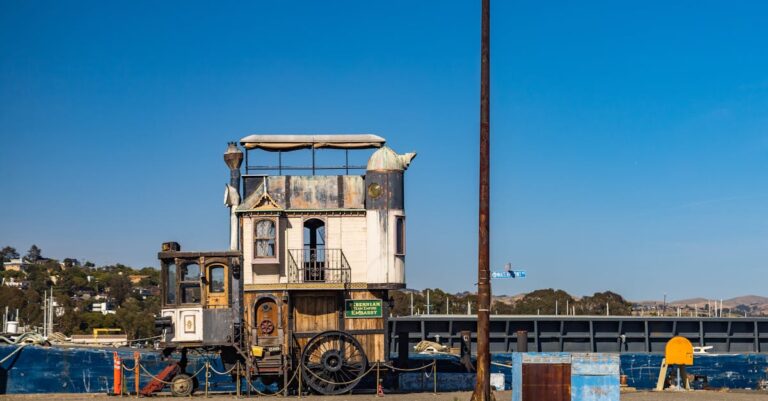
The air reeked of burnt parchment and iron as Eleanor traced the cracks in the courthouse floor, her fingers brushing against dust that had settled for decades. Outside, the bell tower’s iron clapper swung wildly, its clangs slicing through the autumn chill. She hadn’t meant to find the letter—hadn’t meant to pry beneath the loose floorboard in her father’s study—but the words etched in his hand had clawed their way into her mind. *They will come for you next.*
The courthouse was empty except for the sheriff, a man with a jaw like carved granite and eyes that missed nothing. He stood near the oak door, boots scuffing the worn planks as he waited. Eleanor’s throat tightened. She’d seen him arrest men for less than this—seditious remarks, stolen rations, whispers of rebellion. Her father’s crime? Loyalty to a king who’d long since abandoned them.
“You’re not supposed to be here,” the sheriff said, his voice a low rumble. His hand hovered near his holster, fingers twitching. “This isn’t your fight.”
Eleanor squared her shoulders, the fabric of her dress scratching against her skin. “It’s everyone’s fight.”
A beat passed. The bell tower rang again, slower this time, as if the building itself were holding its breath. The sheriff studied her, then stepped aside. “Go then. But don’t come back with stories you can’t prove.”
The courtroom was a tomb of shadows. Eleanor’s boots echoed as she crossed the room, each step a defiance. The trial had been a farce—her father’s own neighbors testifying against him, their voices sharp as broken glass. She’d watched him sit there, calm as a river, his hands folded neatly in his lap. Now he was gone, and the weight of his absence pressed against her ribs like a second heartbeat.
She found the note tucked beneath a stack of legal papers, its edges frayed. The ink was smudged, as if written in haste. *Meet me at the mill. Midnight.* No signature. Just a single line that made her pulse quicken. The mill stood on the edge of town, its stones weathered by time and storms. It was there, she knew, that the rebels gathered—men and women who’d had enough of kings and their cruel games.
The night air bit at her skin as she slipped into the alley behind the courthouse. The moon hung low, casting long shadows that stretched like fingers across the cobblestones. She moved quickly, her breath shallow, until she reached the mill’s rusted gate. It creaked open under her touch, the sound swallowed by the wind.
Inside, the air was thick with the scent of damp wood and oil. A fire crackled in the hearth, its light flickering against the stone walls. Figures moved in the dimness—faces half-hidden by caps and scarves. At the center stood a man with a scar running from his temple to his jaw, his eyes sharp as a hawk’s. He turned as she approached, and for a moment, the room fell silent.
“You’re late,” he said, his voice edged with something like amusement.
Eleanor swallowed. “I wasn’t sure I’d be welcome.”
The man tilted his head. “You’re Eleanor Whitaker’s daughter. That’s reason enough.”
She hesitated, then stepped closer. The firelight caught the silver thread in his coat, the same color as her mother’s wedding ring. “What do you want from me?”
“Your father’s a loyalist,” he said, folding his arms. “But you’re not. You’ve seen what they do. What they take.”
She felt the weight of his words, heavy as stone. “I don’t know what you’re talking about.”
“You do,” he said, stepping closer. “You saw the letter. The one under the floorboard.”
Her breath hitched. “How do you—?”
“We watch,” he said simply. “And we act. Your father’s arrest was just the beginning. They’ll come for others. For you.”
The fire crackled, sending embers spiraling into the dark. Eleanor’s mind raced. She’d spent her life believing in order, in the stability her father had fought to maintain. But now, as she looked at the man before her, she saw something else—determination, a fire that couldn’t be extinguished.
“What do you need me to do?” she asked, the words slipping out before she could stop them.
The man studied her, then nodded. “We need someone who can move unseen. Someone who knows the town better than any of us. Your father’s connections—his secrets—they could be our advantage.”
Eleanor’s fingers curled into her palms. She thought of the letter, the warning it contained. Of her father’s calm face as he’d been led away. Of the sheriff’s cold eyes. This was no longer about loyalty or duty—it was about survival.
“I’ll do it,” she said, her voice steady. “But if I’m caught, you’ll save him.”
The man’s expression didn’t change, but something in his gaze shifted. “We’ll see what the night brings.”
The next morning, Eleanor stood at the edge of the town square, her cloak pulled tight against the chill. The courthouse doors were open, and a crowd had gathered, their murmurs rising like a tide. She spotted her father’s lawyer, a man with a neatly trimmed mustache and a voice that could charm a snake. He was speaking to a group of men in uniform, their coats dark as storm clouds.
Eleanor’s heart pounded as she slipped into the shadows of the alley. The plan was simple: retrieve a ledger from her father’s study, a record of his transactions that could expose the loyalists’ network. But the house was under watch, and every step felt like a gamble.
She reached the front door, her hand trembling as she pushed it open. The hallway was silent, the only sound the creak of floorboards beneath her feet. She moved quickly, her fingers brushing against the cold wood of the study door. Inside, the air was thick with the scent of old paper and ink.
The ledger was where she’d left it, tucked beneath a stack of correspondence. She grabbed it, her breath shallow, and turned toward the door. But as she did, a voice cut through the silence.
“You shouldn’t be here.”
Eleanor froze. The sheriff stood in the doorway, his hand on his holster. His eyes were dark, unreadable. “This isn’t a game, Miss Whitaker. You don’t know what you’re meddling with.”
She tightened her grip on the ledger. “I know exactly what I’m doing.”
The sheriff’s jaw clenched. “You think you can outsmart them? They’ll crush you before you even understand the stakes.”
“Then let them try,” she said, her voice steady. “I won’t stand by while they take everything.”
For a moment, the sheriff said nothing. Then he stepped aside, his expression grim. “Go. But don’t come back with stories you can’t prove.”
Eleanor didn’t look back as she fled into the night, the ledger clutched to her chest. The town was alive with whispers, and she could feel the weight of every eye upon her. But she didn’t stop. Not until she reached the mill, where the rebels waited in the dark.
The man with the scar was there, his face etched with concern. “You got it?”
Eleanor nodded, handing over the ledger. “It’s all here—names, transactions, everything.”
“Good,” he said, his voice low. “This changes everything.”
But as he turned the pages, his expression darkened. “There’s more than we expected. This isn’t just about loyalists—it’s about corruption at the highest levels.”
Eleanor’s stomach twisted. She’d thought this was a fight for survival, but now she saw the truth: it was a battle for the soul of the colony itself. And she was in too deep to turn back.
The following days were a blur of secret meetings and coded messages. Eleanor became a shadow, moving between the rebels’ hideouts, delivering documents, relaying warnings. She learned to read the unspoken language of danger—the way a man’s hand hovered near his coat, the way eyes darted in the dark. But with each step, the weight of her choices grew heavier.
One night, as she returned from a meeting, she found her father’s house empty. The door was ajar, the air thick with the scent of smoke. She stepped inside, her heart hammering. The study was ransacked, papers scattered like leaves in a storm. A single note lay on the desk, written in her father’s hand: *They took me. Forgive me.*
Tears burned her eyes, but she forced herself to move. This wasn’t over. Not yet. She gathered what she could, stuffing documents into her satchel, and slipped out into the night. The town was quiet, too quiet, and every shadow felt like a threat.
She found the rebels at the mill, their faces grim. The man with the scar stood near the fire, his expression hard. “We’ve been betrayed,” he said. “Someone fed them our plans.”
Eleanor’s breath caught. “Who?”
“We don’t know yet,” he said. “But we have to act fast. They’ll come for us next.”
The fire crackled, its light flickering against the stone walls. Eleanor felt the weight of the ledger in her satchel, the knowledge it contained. This wasn’t just about her father anymore—it was about every man, woman, and child who had dared to dream of a different future. And she would see it through, no matter the cost.


